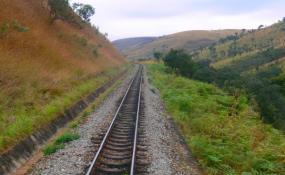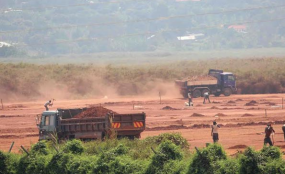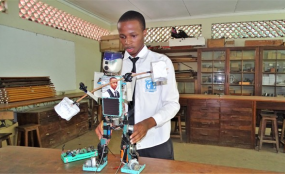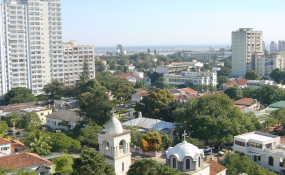Luanda — The construction of a railway heading to Luanda’s new International airport has started four months ago with ground-levelling works from kilometro 30 locality in Viana municipality to Bungo, Luanda Port.
The construction works are being carried out in three fronts and are set to be concluded within 18 months.
The Luanda’s new international airport will have the capacity to provide services to 10 million passengers per year, its partial conclusion and inauguration is due to take place this year.










